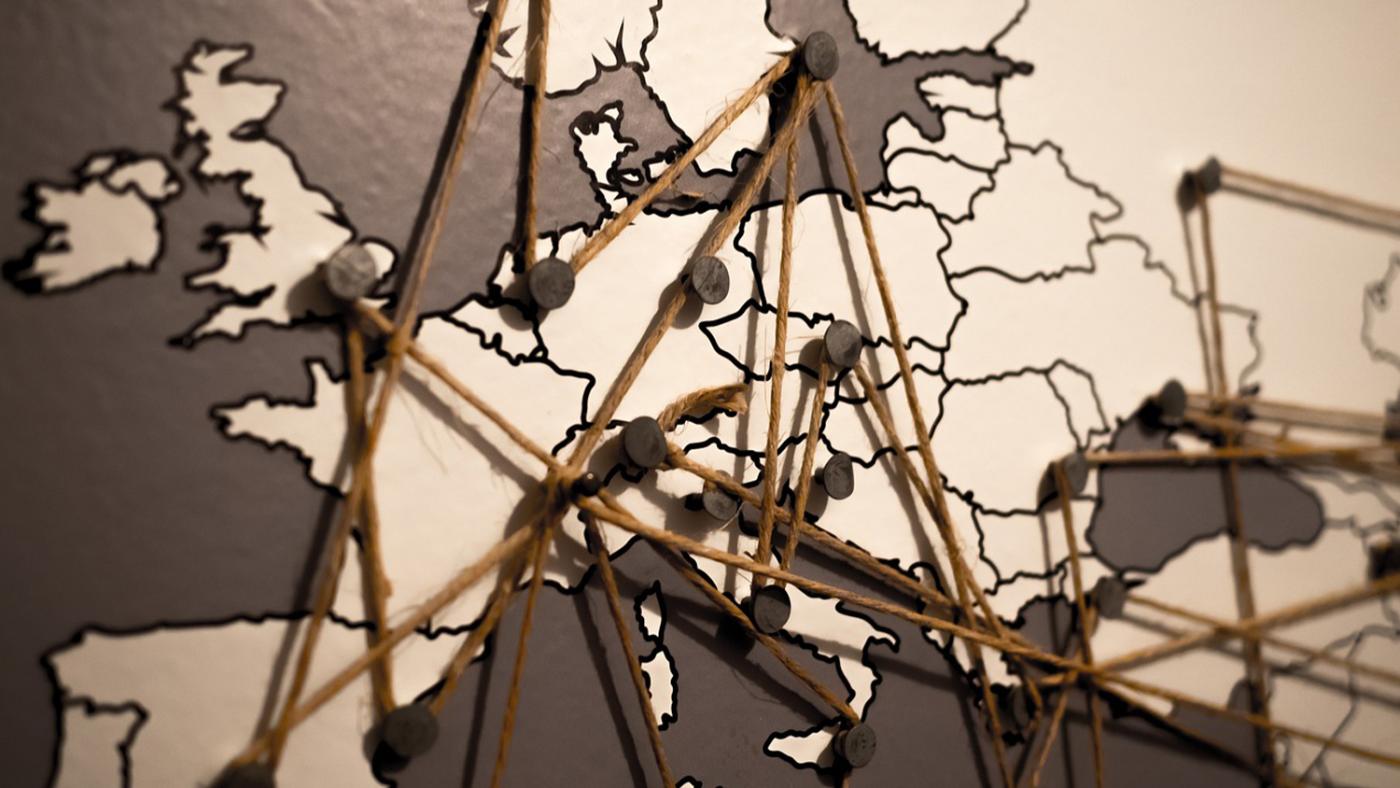Nuffic-expert Bas Wegewijs explanes
Moving to another EU country with your diploma: is it really that hard?

Last Wednesday, the European Commission published a list of the terrible ten: the ten most annoying trade barriers in the European single market. With a trade war raging, it is time to streamline our own market, argues the Commission.
According to the Commission, one of the ten most irritating obstacles is that diplomas from one EU country are not automatically recognised in other Member States. Granting recognition should be easier and faster.
But most people can already easily work abroad with their qualifications, says Nuffic expert Bas Wegewijs. Only for regulated professions, such as healthcare or education, do different rules apply in each country.
Foreign diplomas
Wegewijs has been working at Nuffic for 23 years as a team leader and specialist in foreign diplomas. Together with his forty colleagues in the education comparison team, he produces 40,000 diploma evaluations every year. Government agencies, companies, newcomers and educational institutions come to them to find out the value of a foreign diploma in the Netherlands.
Is it really such a mess in the EU? And how could it be improved? Wegewijs does not foresee any major changes: “The introduction of the bachelor's-master's system has already brought European countries closer together.”
What did you think when you read about the European Commission's plans?
“I noticed that the Commission also talks about “automatic” recognition in regulated professions. That was last regulated in the 1980s with architects' diplomas. It took more than twelve years to achieve that. There are still only seven regulated professions for which automatic recognition applies.”
Why is that so difficult?
"Because not only is education different in different countries, but so is the profession itself. Physiotherapists are a good example. In one country, they work at secondary vocational education level, under the responsibility of a doctor. In other countries, such as the Netherlands, physiotherapists make diagnoses and draw up treatment plans. They have a bachelor’s or master’s degree. They work at higher professional education level. That is why, for example, a Dutch and a German diploma cannot simply be equated – although in recent years Germany has also been training more and more physiotherapists at universities of applied sciences like in the Netherlands."
Will German physiotherapists soon be able to start working in the Netherlands overnight?
“No, because countries carry out even more checks on foreign qualifications. Is it forged? Is this person on a blacklist in their own country? We see some types of qualifications so often that we can determine their value fairly quickly. The other checks are the most time-consuming.
“In addition, anyone who wants to work in a medical profession in the Netherlands almost always has to be registered in the BIG register. This is done by the Ministry of Health. And DUO determines the teaching qualifications of teachers with foreign qualifications. They have their own procedures for this. These don't take very long, but it can easily take a few weeks to months."
What can the EU do to make diploma recognition easier and faster?
“A lot is already being done. The national organisations that recognise diplomas are increasingly working together. The Netherlands is a pioneer in this field. We coordinate the work on European recognition manuals and train foreign colleagues. The EU could do more to encourage countries to share information with each other so that we don't duplicate work.
“The Commission has already invested a lot of money in promoting joint degrees. These are often full bachelor's or master's programmes offered jointly by different European universities. This also helps to bring education closer together. The next step is a European diploma. Work is also underway on this. There is a lot of debate about this in Dutch politics, but it could be another step towards European integration."
So you don't see any major barriers that can be quickly removed?
"The Commission's aim is to streamline the internal market, but I think it is often more complicated for EU citizens to arrange their pensions or taxes in another country than to have their qualifications recognised.
“Many people do not work in a regulated profession. In the liberal professions, EU citizens can already easily work across borders. An employer can hire an IT specialist with a Finnish bachelor's degree without first having to have the diploma recognised."
Do you think that the recognition of diplomas will ever be frictionless?
“It depends on what you mean by frictionless. Sometimes employees already have to jump through bureaucratic hoops when they move within their own country. In some German states, different requirements apply to teachers. You see the same thing in countries such as the US and Canada. Cultural differences between countries and regions will mean that mutual recognition of qualifications will always be necessary.”